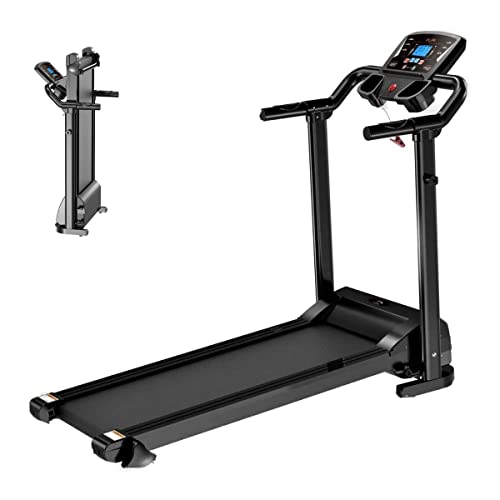This company has no active jobs
About Us
15 Things You’ve Never Known About Treadmills

Understanding Treadmills: Types, Benefits, and Considerations
Treadmills have actually ended up being an integral part of physical fitness culture, offering a practical option for people seeking to improve their cardiovascular fitness without the need for outside areas or weather considerations. With a variety of functions and designs readily available, possible purchasers should be educated to make the best decision. This short article aims to provide an extensive introduction of treadmills, including the various types, advantages, and factors to consider when acquiring one.
The Different Types of Treadmills
1. Manual Treadmills
Manual treadmills are powered by the user instead of an electric motor. They require no electrical power and usually include an easy style with fewer moving parts.
Advantages of Manual Treadmills:
- Cost-effective
- Portable and lightweight
- No dependence on electricity
Drawbacks:
- Limited functions
- Typically do not have slope choices
2. Motorized Treadmills
Motorized treadmills are the most common type, powered by an electric motor. They usually use numerous functions such as programmable exercise regimens, adjustable inclines, and higher weight capabilities.
Advantages of Motorized Treadmills:
- Smooth operation and consistent traction
- Versatile with innovative features for diverse workouts
- Options for slope and decline settings
Disadvantages:
- Higher cost compared to manual treadmills
- Require electrical power and might increase electric expenses
3. Folding Treadmills
Folding treadmills are designed for simple storage, making them perfect for those with restricted area.
Benefits of Folding Treadmills:
- Space-saving style
- Easy to carry and store
- Appropriate for home usage where area is at a premium
Drawbacks:
- Typically may have a smaller sized running surface area
- Weight limitation might be lower than non-folding designs
4. Commercial Treadmills
These treadmills are constructed for resilience and performance, usually found in gyms and physical fitness centers. They are designed for high use rates and featured innovative functions.
Advantages of Commercial Treadmills:
- Extremely resilient and typically supported by service warranties
- Complete variety of functions, including advanced training programs
- Suitable for sturdy exercises
Downsides:
- Higher price point
- May be too big or heavy for home use
| Type of Treadmill | Power Source | Common Features | Ideal For |
|---|---|---|---|
| Handbook Treadmill | None | Standard workout metrics | Minimalist users |
| Motorized Treadmill | Electric | Programmable workouts, incline alternatives | General physical fitness lovers |
| Folding Treadmill | Electric | Space-saving design | Home users with restricted area |
| Business treadmill uk sale | Electric | Advanced training programs | Gym facilities |
Advantages of Using a Treadmill
Treadmills use various benefits for people seeking to enhance their fitness levels or preserve an athletic regimen.
1. Convenience
Owning a treadmill enables users to work out at their own schedule, eliminating reliance on weather. It provides flexibility, as exercises can occur day or night.
2. Adjustable Workouts
Many modern treadmills include adjustable programs to accommodate novices and skilled professional athletes. Users can change speed, incline, and exercise duration to optimize the effectiveness of their sessions.
3. Tracking Progress
Most treadmills come geared up with digital screens that tape-record crucial stats such as range, speed, calories burned, and heart rate. Monitoring this data helps users track their physical fitness progress in time.
4. Minimized Impact
Treadmills often supply a cushioned surface area that can decrease joint effect compared to running on difficult outside surface areas, making them an appropriate option for individuals with joint issues or those recovering from injuries.
5. Variety of Workouts
Users can take part in various exercises on a treadmill, from walking and jogging to interval training and speed work. Some machines even offer integrated courses that mimic outdoor terrains.
Considerations When Buying a Treadmill
When acquiring a treadmill, individuals should think about numerous elements to guarantee they make an informed decision.
1. Area Requirements
- Step Available Space: Before choosing a design, measure where the treadmill will be put to ensure it fits easily.
- Consider Folding Options: If space is a concern, consider buying a folding treadmill for practical storage.
2. User Weight and Height
- Examine the weight capacity of the treadmill to accommodate its intended users.
- Make sure that the belt length is appropriate for users’ strides, especially for taller people.
3. Features and Technology
- Assess whether advanced features like heart rate monitors, Bluetooth connection, and built-in training programs are essential for the desired user.
- Investigate easy to use interfaces and item reviews on display quality.
4. Guarantee and Customer Support
- Review service warranty alternatives to comprehend what is covered and for for how long. Some designs might provide prolonged warranties or guarantees for parts.
- Assess the brand name’s reputation for customer support in case of breakdowns or questions.
5. Cost Range
- Consider your spending plan however remember that less expensive models may lack features, resilience, or guarantee support.
- Explore funding choices if purchasing a higher-end model.
FAQs About Treadmills
1. What is the average lifespan of a treadmill?
Typically, a top quality treadmill can last in between 7 to 12 years, depending on use, maintenance, and build quality.
2. What is the best treadmill brand?
Popular brand names include NordicTrack, Sole Fitness, Precor, and LifeSpan, each understood for their quality and customer complete satisfaction.
3. Can I utilize a treadmill for walking?
Yes, treadmills are perfect for walking, jogging, or running, making them flexible for users of all fitness levels.
4. How frequently should I service my treadmill?
Regular maintenance is generally recommended every six months to guarantee ideal efficiency and durability.
5. Is it okay to operate on a treadmill every day?
While running on a treadmill daily is acceptable for some, it’s wise to integrate day of rest or alternate exercises to avoid possible overuse injuries.
In conclusion, treadmills stay a popular choice for physical fitness enthusiasts trying to find versatility and customizability in their exercise regimens. By understanding the various types available, their advantages, and crucial aspects to think about throughout purchase, users can make an informed choice that lines up with their fitness objectives and lifestyles.



